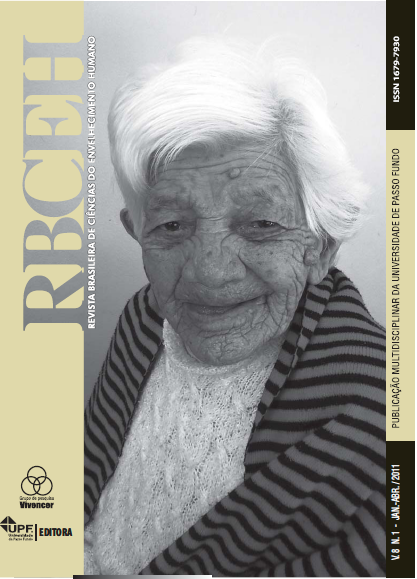ASSISTIVE DESIGN TO SENIOR POPULATION: PORTABLE UNITY SUPPORT
DOI:
https://doi.org/10.5335/rbceh.v8i1.415Keywords:
Limitação da Mobilidade, Idosos, Saúde do Idoso, Prevenção de Acidentes, TecnologiaAbstract
Abstracts Due to the growth of the senior population in Brazil, this paper focuses on optimizing the lives of this specific social segment, through the design of a product that promotes an active ageing, in other words, allows mobility and consequently quality of life to elderly people. The assistive design was an essential tool to the development of a project that fit into the physiological context of the ageing individual with his/her daily activities, without excluding or allowing segregation from society. The development of methodology allowed detection of daily difficulties not previously reported in simple questionnaires, while brought tangible results to the designer who, with the aid of assistive technologies, could focus on accessible and attractive solutions specific to elder citizens. The achievements of the research allowed the designer to project specific products to the deficiencies previously detected. This work clearly presents how a designer, working with health issues that are consequences of the ageing process of population, makes possible the softening of the loss of functionalities that impacts senior people.Downloads
Download data is not yet available.
Downloads
Published
2012-08-06
Issue
Section
Artigos Originais
License

Todos os artigos estão licenciados com a licença Creative Commons Atribuição-NãoComercial-SemDerivações 4.0 Internacional. A Revista é detentora do Copyright.
How to Cite
ASSISTIVE DESIGN TO SENIOR POPULATION: PORTABLE UNITY SUPPORT. (2012). Revista Brasileira De Ciências Do Envelhecimento Humano, 8(1). https://doi.org/10.5335/rbceh.v8i1.415




